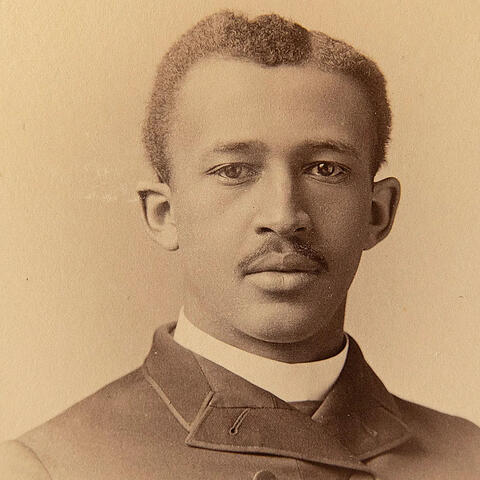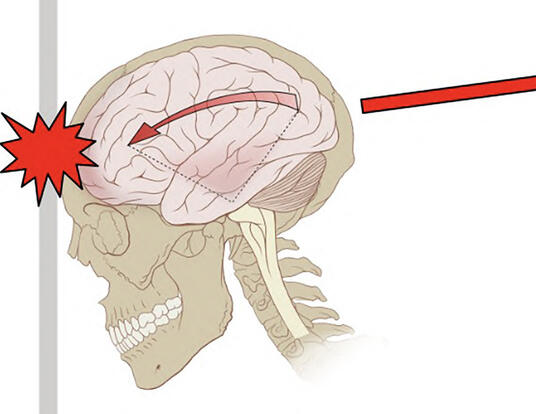Colloquy Podcast: Bridging the Mental Health Care Gap
Research at Risk: Since World War II, universities have worked with the federal government to create an innovation ecosystem that has yielded life-changing progress. Now much of that work may be halted as funding is withdrawn. Find out more about the threats to medical, engineering, and scientific research, as well as how Harvard is fighting to preserve this work—and the University's core values.
The world faces a significant gap in mental health care, leaving millions of young people with mental illness without access to the support they need. In this talk given at the 2025 Harvard Horizons Symposium, psychology PhD candidate Katherine Venturo-Conerly describes her research project, "Tackling the Global Youth Mental Health Challenge: Lessons from Psychotherapy Research in Kenya," which focuses on creating and implementing effective, accessible mental health interventions for children and adolescents in multiple countries, with a particular focus on Kenya.
This transcript has been edited for clarity and correctness.
One-fifth of people under 18 experience a mental illness each year, which can harm their quality of life, their relationships, their physical health, and their prospects for the future. Ninety percent of these youth live in lower- and middle-income countries. In high-income countries, only about a third of youth in need access mental health care, and in lower- and middle-income countries, only about one-tenth of youth in need access care.
Randomized controlled trials, or RCTs, are generally considered the gold standard in clinical psychology and medical research, and I found that only about five percent of youth psychotherapy RCTs have been conducted in lower- and middle-income countries. So overcoming this vast inequity between needs on the one hand, and research and access on the other, is imperative. This is a very difficult gap to overcome, however, for several reasons.
First, the scale of need is huge, with hundreds of millions of youth meeting criteria for a mental illness each year. And second, personal and contextual factors influence what sort of mental health care may be most feasible and effective. Usually, we rely on highly trained experts to provide contextualized and appropriate care. However, in many parts of the world, there are few professional providers available.
Even in my volunteer and clinical work in urban areas in the US, needs far exceed the services that are available. This problem is only magnified in rural areas and in many parts of lower- and middle-income countries, and personalized mental health care as we know it, simply cannot meet the scale of the need. Bridging this gap between scale and context is what brought me to pursue a PhD in clinical psychology, where I can use skills in data, statistics, clinical care, and community-based collaboration to start to answer a very difficult question: how can we provide psychotherapies that are effective for individual youth within their personal context, at a large enough scale to make a widespread difference?
To give you some context, prior to my PhD, I met Tom Osborn, at the time a fellow undergraduate and an entrepreneur, and as he and I worked together to build youth psychotherapies that were both scalable and contextually appropriate, a core tenant of our work was deep involvement of and ownership by people living within the context of psychotherapy implementation, which requires a collaborative and community-based approach. So we’ve worked together with a large team of international collaborators, including my advisor John Weisz at Harvard, and many full- and part-time staff based in Kenya to build, over the last six years, our nonprofit, Shamiri Institute.
Shamiri means “thrive” in Kiswahili. Shamiri integrates community-based research and service, which has helped us to reach over 130,000 youth to date, and it has been central to my work at Harvard. The Shamiri intervention is a youth psychotherapy that is fit to its context, balancing pragmatism and effectiveness. Instead of lasting for 16 or more sessions, it lasts for only four. Instead of taking place in clinics, it takes place more accessibly in schools. And instead of focusing on psychopathology, it circumvents stigma by focusing on positive concepts, growth mindset, gratitude, and values affirmations, all of which are researched-backed interventions theorized to produce an upward spiral of change in beliefs and behaviors.
Shamiri is delivered by lay providers, or recent high school graduates, who are trained and supervised by individuals with more training in psychology, who are then supervised by a few expert clinicians available for those youth with the greatest needs. To see whether Shamiri is significantly effective, we've tested it in several RCTs. Students were randomly assigned to either the Shamiri intervention condition or to an active control condition focused not on Shamiri but instead on study skills, and their outcomes, including depression and anxiety, were measured over time. Let me show you just a few of our findings.
In the trial shown on the screen, on the vertical axis, you can see symptom scores, where lower scores are better, and on the horizontal axis, you can see time since starting the trial, running through seven-month follow-up. We found that in both conditions, symptoms decreased, but they decreased more within the Shamiri intervention condition, and similar effects were seen across three other RCTs. Importantly, these effects are on aggregate, so the effects of Shamiri and its elements will differ depending on the internal and external context of each person participating.
In another trial in 2021, the context had changed. At this time, schools were under a great deal of pressure, following a ten-month Covid shutdown, to compress three years of schoolwork into only two years. Students were so stressed that there was an epidemic of fire-setting, started by highly stressed students attempting to avoid exams. And in this changed context, we were somewhat surprised to find that the study skills active control condition was actually considerably more effective than it had been previously.
We think that this is because the context of highly elevated academic stress made study skills particularly relevant to reducing students’ psychological distress. So building on this finding, we've designed, and we've tested, three therapy components, each targeting one of the three most common life problems experienced by Kenyan adolescents: social skills, study skills, and financial skills. Preliminary data show this suite of three life skills focused interventions reducing symptoms of depression and anxiety significantly more than services as usual in schools. And this is somewhat surprising to us, given that none of these life skills interventions directly target symptoms of mental illness.
So, as we have multiple intervention options, how should we decide which youths in which contexts will benefit most from which interventions? This is the question that drives my current PhD research, using statistical and machine learning. And in the long term, I'm interested in personalizing community-based interventions to fit individual youth within their contexts at scale. I want to say thank you to my advisors, to my collaborators at Harvard, Shamiri, and elsewhere, to my funders. And thank you to everyone working to support those affected by mental illness around the world.
This research was funded by the National Institute of Mental Health and the National Research Service Award.
The Colloquy podcast is a conversation with scholars and thinkers from Harvard's PhD community on some of the most pressing challenges of our time—from global health to climate change, growth and development, the future of AI, and many others.
About the Show
Produced by GSAS Communications in collaboration with Harvard's Media Production Center, the Colloquy podcast continues and adds to the conversations found in Colloquy magazine. New episodes drop each month during the fall and spring terms.
Talk to Us
Have a comment or suggestion for a future episode of Colloquy? Drop us a line at gsaspod@fas.harvard.edu. And if you enjoy the program, please be sure to rate it on your preferred podcast platform so that others may find it as well.
Get the Latest Updates
Join Our Newsletter
Subscribe to Colloquy Podcast
Simplecast





